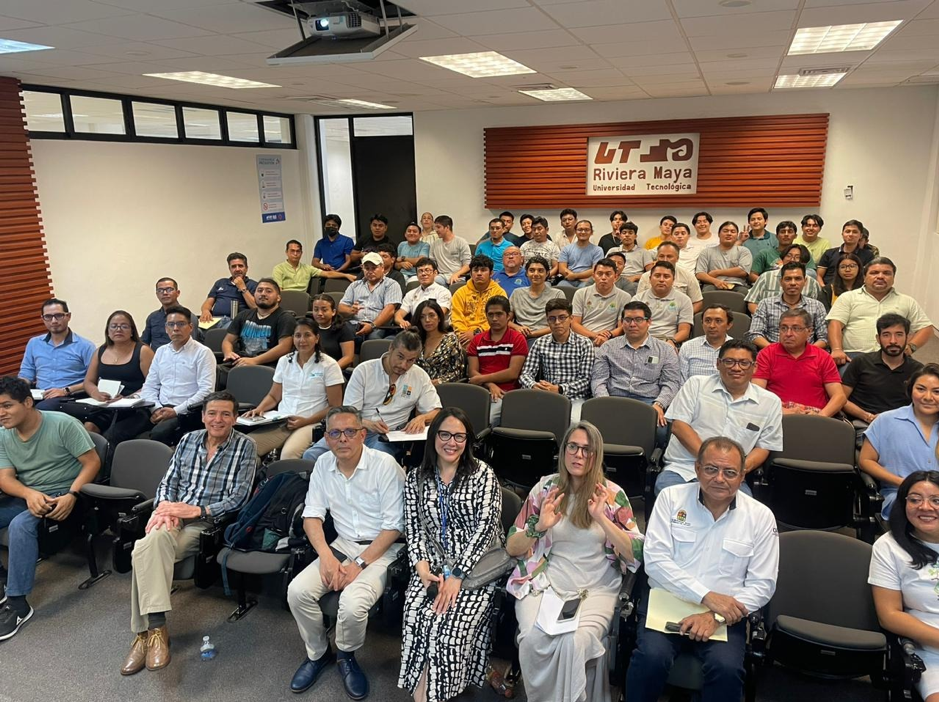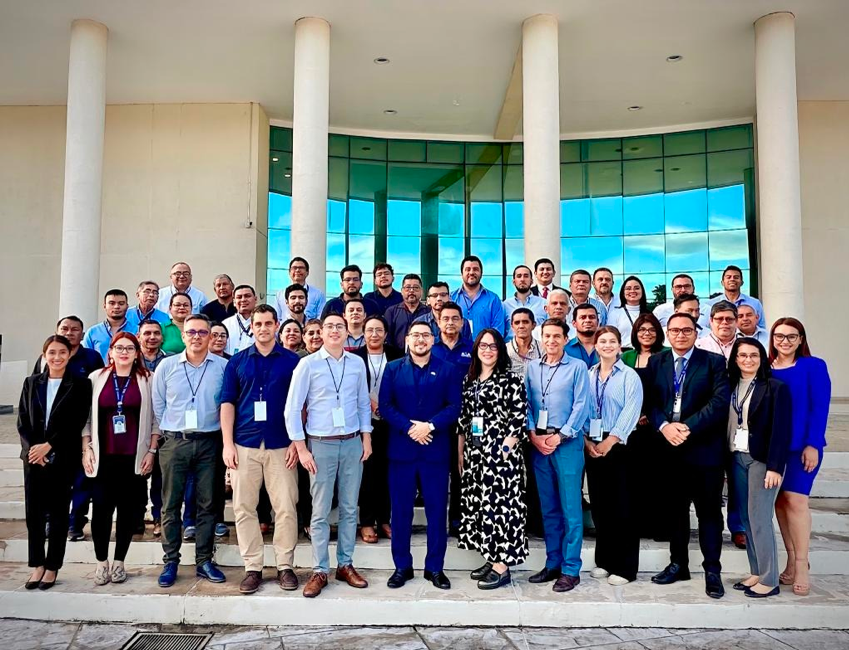ECLAC: Promoting Circular Economy in the Potable Water and Sanitation Sector (Mexico)
Work area(s)
Topic(s)
Teaser
The Water and Energy Unit of the Natural Resources Division of ECLAC carried out a training mission in Mexico from July 17th to July 21st, with the aim of promoting circularity in the drinking water and sanitation sector. The mission included theoretical training, technical working sessions, and on-site visits to local plants, where topics such as methane utilization, nutrient recovery, and energy efficiency were addressed. The visits to these plants allowed for the assessment of specific improvements in the treatment plants, as well as the feasibility evaluation of methane recovery and the formulation of pre-feasibility and investment plans in circular technologies. Additionally, a socialization session with the community was organized.
Event information

Date
7 Aug 2023, 07:30 - 08:30Event type
Members of the Natural Resources Division of CEPAL embarked on a mission to Quintana Roo, Mexico from July 17th to July 21st, as part of the project "Drinking Water, Sanitation, and Renewable Energies to improve health conditions of the population and promote productive uses in municipalities/territories of El Salvador, Mexico, and Panama," funded by the United Nations Fund for Peace and Development and GIZ. The main objective of the mission was to strengthen technical capabilities to promote circularity in the drinking water and sanitation sector, through practical exercises that would allow calculating the methane capture potential and the cost-benefit of related investments to generate energy and reduce operational costs, from a circular point of view.
This training stands out from other training organized by CEPAL, as it focused on local Wastewater Treatment Plants (WWTPs), becoming the first pilot experience in this subject, using a participative methodology based on local context and necessity (Bottom-Up) in order to leave no one behind. Additionally, it is important to mention that Quintana Roo is a region strategically dependent on tourism, and an increase in both tourists and local population is expected in the coming years. Therefore, the project will contribute by developing local capacities to create pre-feasibility and investment plans on a local scale, which usually lack access to financing due to a lack of evidence in business opportunities.
The training also included a socialization session with the local community, carried out in a hybrid format, with more than 50 participants present on-site and 60 participants online from various countries in the region, all interested in local experiences that could drive changes and simultaneously allow for the compliance of SDG 6 and 7. The session began with a welcome from the Local Director of CONAGUA (National Water Commission) in Quintana Roo, Ms. Erika Ramírez. A video from the Director of the Division of Natural Resources of CEPAL (Economic Commission for Latin America and the Caribbean), Dr. Jeannette Sánchez, was shown, highlighting the relevance of this project at the regional level. The session was led by Dr. Silvia Saravia Matus, who presented on "Sustainable and Inclusive Water Transition in Latin America and the Caribbean (ALC) and Opportunities to Accelerate SDG 6 in the Region and Mexico within the Framework of the Circular Economy Project in the Drinking Water and Sanitation Sector." Additionally, Dr. Marina Gil presented on the Energy Transition to drive transformative sustainable development in the region, including the projects that CEPAL is undertaking in Mexico, Panama, and El Salvador, based on circular principles. This presentation was followed by a discussion of the project with the local community and participants from the CONAGUA Team (Mexico City), CONAGUA Team (regional Quintana Roo), State Water and Sewerage Commission of Mexico (CAEM) Team, State Water and Sewerage Commission of Quintana Roo (CAPA) Team, and representatives from four Wastewater Treatment Plants (WWTPs): Centenario (Chetumal, QR), Bicentenario (Tulum, QR), San Miguelito (Cozumel, QR), and San Martín de las Pirámides (State of Mexico).
Finally, an on-site visit was conducted at the Bicentenario WWTP in Tulum, which has public expansion plans and the potential for incorporating circular principles discussed in the workshop. This hands-on approach ensured a comprehensive understanding of the unique challenges and opportunities of the plant. By directly engaging with local operators and stakeholders, personalized recommendations were provided to address the specific needs and circumstances of the facility.
Finally, an on-site visit was made to the Bicentenario WWTP in Tulum, which has public expansion plans and where the application of circular principles taught in the workshop could be considered. This practical approach ensured a comprehensive understanding of the unique challenges and opportunities of the plant. By engaging directly with local operators and stakeholders, personalized recommendations were provided to address the specific needs and circumstances of the facility.
View more images of the mission in the following link.
Related content

ECLAC: Promoting Circular Economy in the Potable Water and Sanitation Sector (El Salvador)
ECLAC conducted a comprehensive mission in San Salvador, El Salvador, on September 5th and 6th, 2023. This mission focused on promoting and providing advanced training in circular economy principles…

ECLAC conducts training in the formulation of investment plans in circular technologies for wastewater treatment plants in southern Mexico
The water team of ECLAC is organizing a training mission in the state of Quintana Roo, Mexico, from July 17th to 21st, with the aim of promoting circularity in the drinking water and sanitation…

Sesión socialización de proyectos de Economía Circular, Unidad de Agua y Energía de CEPAL
En la sesión llevada a cabo el 18 de julio de 2023 en Quintana Roo, México, en el marco del proyecto de economía circular en el sector de agua potable y saneamiento en México, se presentaron las…
Attachment(s)
-
1. Transicion Hidrica Sostenible en ALC
2. Economia Circular - Oportunidades de Aguas Residuales en ALC
3. Inversiones en metano - Aguas Residuales
4. Eficiencia Energética de Agua y Saneamiento
5. Metodologia para determinacion de metano
6. Aplicación de la Metodologia - Recuperacion de Metano
7. Estimación de inversiones - Evaluación financiera de los PTARs